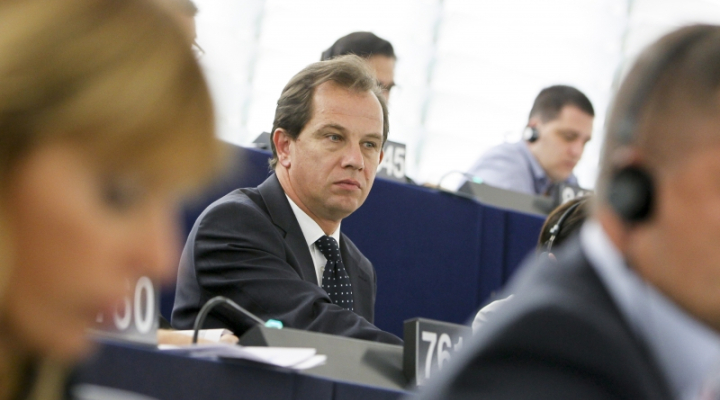Csaba Sógor: We tend to make the same mistakes when handling the refugee crisis as in autochthonous minority protection issues
We can see similar errors in how the refugee crisis and autochthonous minority protection issues are handled, when responding to both with the same set of measures, though they are two very different problems – pointed out Csaba Sógor in Brussels. The RMDSZ MEP emphasized: indigenous minorities are not immigrants, also pointing out that among the latter there are both genuine asylum seekers in need of support as well as economic migrants.
The issue of indigenous national minorities was the main topic on the agenda during lobbyist Frank Schwalm-Hoth’s latest monthly events organised in the European Parliament. On the 29th of September Csaba Sógor was the guest speaker at the event eentitled Soirée Internationale, that is meant to provide a kind of informal meeting venue for those engaged in EU affairs. MEPs and staff from both the European Parliament and Commission attended the event.
RMDSZ MEP Csaba Sógor talked about minority protection in Europe. He pointed out that the main issue is that the EU legal system does not have a definition for autochthonous national minorities. The term national minorities is not defined, and autochthonous minorities are often treated as immigrant minorities. In the opinion of the politician this is the reason for which actions aimed to solve their problems are very varied. Sógor Csaba pointed out that the same can be observed in the case of asylum seekers: the EU does not differentiate between asylum seekers and economic migrants. “The two are not the same” – stressed the MEP.
Csaba Sógor stated that when the quota system for the sharing of 120 thousand asylum-seekers was on the European Parliament's agenda he voted against it. “I do not think that the distribution of these people is the solution here. The issue should be firstly addressed outside the borders of the European Union” – he said. The RMDSZ MEP has previously urged Europe to do more in trying to stop the root causes of migration. In his opinion one way of addressing this issue could be processing the applications of asylum seekers in safe zones outside the EU. He also believes that there is a need for a stronger, long-term commitment on behalf of the EU, and a more targeted development policy in the countries of origin to address the causes of the refugee crisis: civil wars, terrorism, poverty and endemic corruption.











